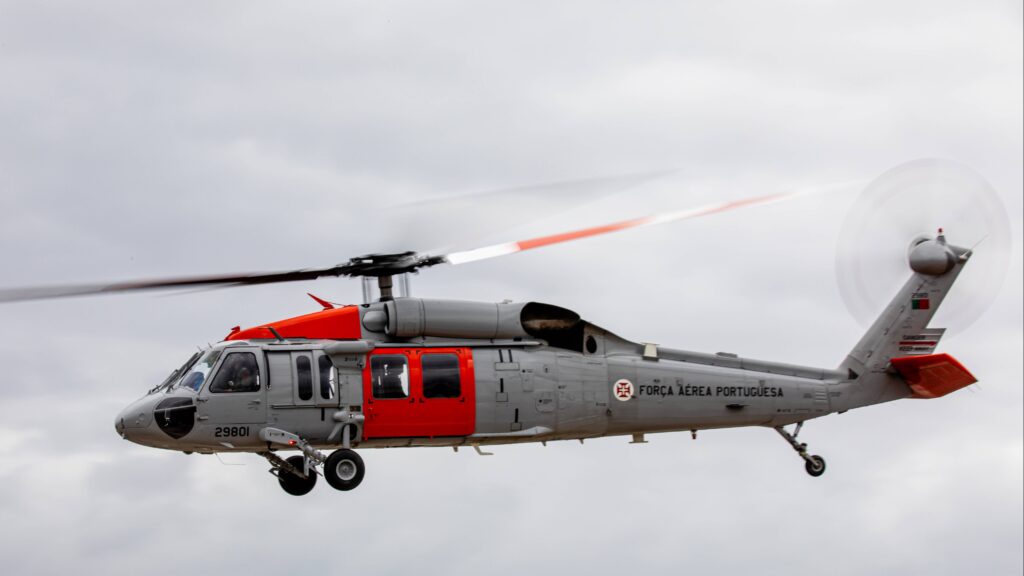Portugal Acquires More Black Hawks For Its Firefighters
Portugal has strengthened its aerial firefighting capabilities by procuring three additional UH-60 Black Hawk helicopters. This recent acquisition, finalized on 6 September, is part of a broader effort to modernize and enhance the Portuguese Air Force’s (FAP) capacity to combat rural fires. These helicopters are sourced from Ace Aeronautics LLC. The majority of this procurement is funded by European Union through the Recovery and Resilience Plan (PRR) funds. The aircraft will be delivered between 2025 and 2026, expanding the current fleet to nine Black Hawks.
The UH-60 Black Hawk is widely recognized for its versatility, capable of both firefighting and military transport missions. Each helicopter can carry up to 12 fully equipped firefighters and transport approximately 2,950 liters of water per sortie. The Portugese Air Force has a dedicated air firefighting unit, FAP Squadron – 551 “Panteras”, which operates the UH-60 Black Hawks and is responsible for conducting firefighting operations from the air.

The new helicopters will augment an already growing fleet. Portugal initially acquired six refurbished UH-60s from Arista Aviation, two of which have already been delivered, with four more arriving by 2025. The latest procurement brings the total number of Black Hawks to be operated by the FAP to 9. These helicopters, along with two AW119 Koalas and two heavy-duty Canadair planes acquired earlier, signal a robust investment in aerial firefighting resources.
The training of FAP personnel is also a key component of the procurement contract. Six pilots and 18 mechanics will undergo rigorous training to ensure the safe and efficient operation of the Black Hawks. This aligns with the government’s decision in 2018 to transfer the responsibility for aerial firefighting to the FAP, reflecting Portugal’s long-term commitment to forest fire prevention and control.
Additional support for rescue services is dearly needed as the country struggles with large wild fires during the hot, dry summer months. The latest such event took place in September, as Portugal struggles with yet another wave of forest fires.

